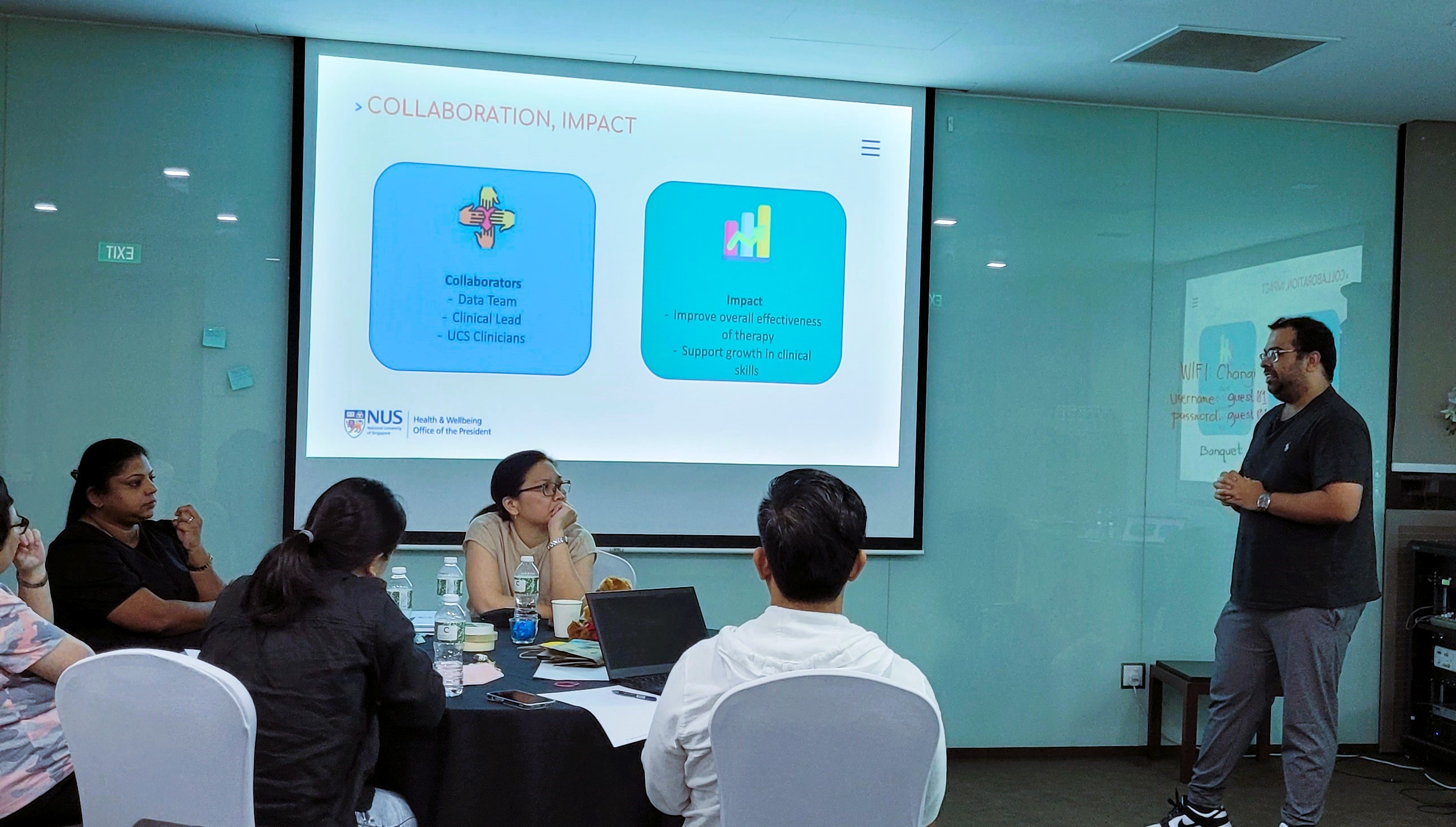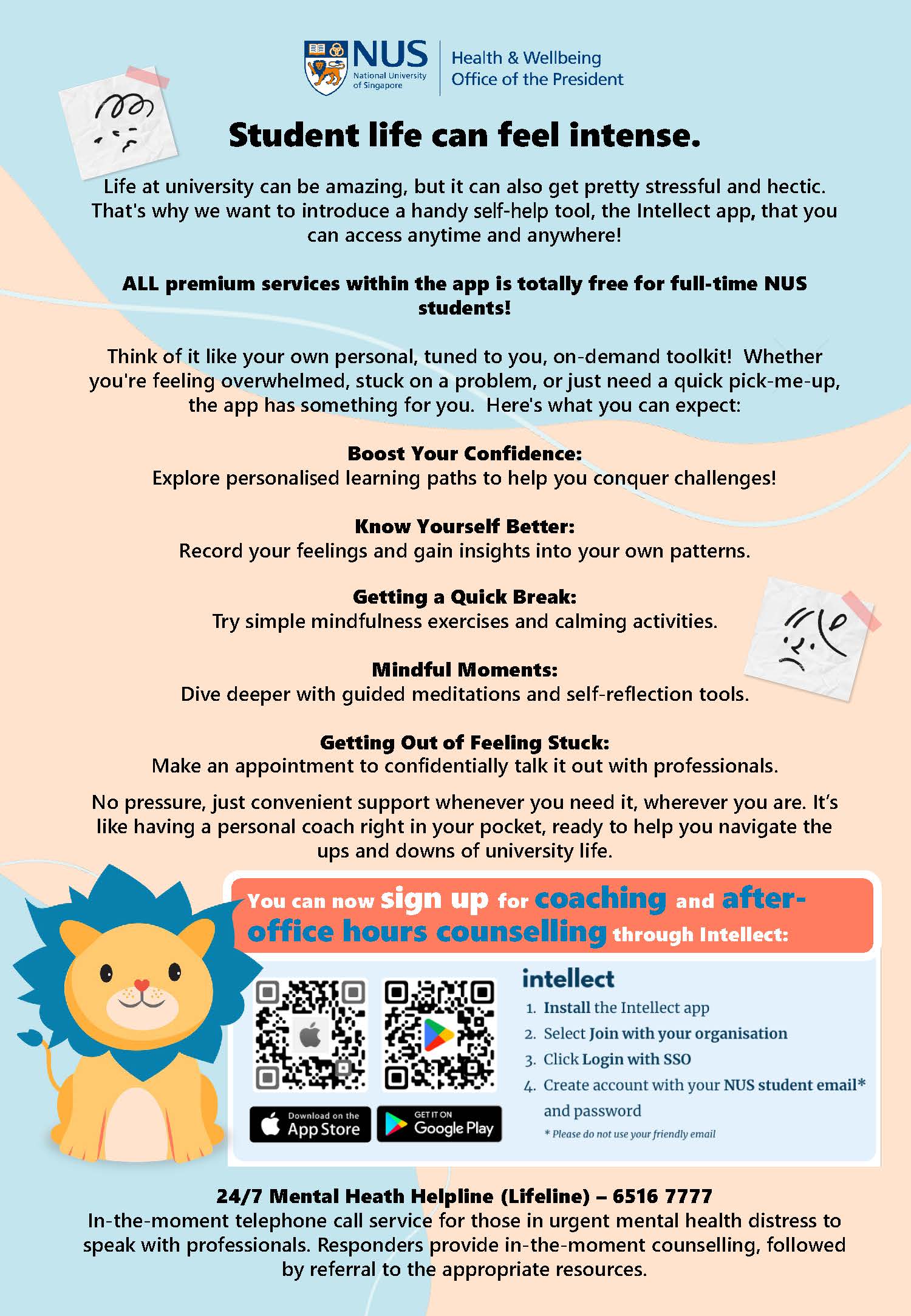With the mission of providing high-quality mental health services in mind, the University Counselling Services (UCS) has transformed its business model to better serve students. This strategic pivot has resulted in a significant improvement in service delivery and a substantial reduction in wait times for students seeking counselling.
UCS is part of the NUS Health and Wellbeing (HWB) unit operating under the Office of the President, specialising in counselling services for students. With increasing mental health awareness, more students are taking a proactive approach to managing their well-being. While this is a positive development, it has also led to a growing demand for counselling services, resulting in longer wait times for appointments, which can range from 3 to 8 weeks. These delays could discourage students from seeking help and may even exacerbate their mental health struggles.
"We have observed an increase in crisis/walk-in clients in recent years. Some of them come because the waiting time to access counselling is too long, and they need more immediate support. We all know that a longer wait may potentially increase the student's risk or the level of impact of the problem in their life, making them even more in need of help," shared Fabiola Agustina Kansil, Principal Counsellor and Head of UCS.
In response to these challenges, UCS implemented several strategic changes. The strategy focused on three key areas:
- Streamlined Operations: UCS established a dedicated Case Management Team to manage walk-in students and provide closer follow-ups. This allows for more efficient handling of immediate needs without overburdening the clinicians.
- Increased Staffing: The number of counsellors was increased to meet the growing demand.
- Enhanced Organisational Structure: A hierarchical structure was introduced to provide better clinical support and supervision for counsellors with varying levels of experience. This allows new counsellors to learn more quickly from those with more experience.
These initiatives have led to a significant decrease in the average wait time for first appointments, from 21 days to an average of 8.7 days in 2023. UCS now consistently offers 240 slots each month for new clients, an increase from the previous 144 slots, which allows more students to access services with shorter wait times. As a result, UCS is now able to provide an additional 1000 hours of first appointments annually.
The staff at UCS have also benefited from the new model. The introduction of a dedicated team of case managers has increased the efficiency of walk-in counselling, helping to reduce the risk of clinicians from becoming overworked. The new structure has also allowed staff to have stronger clinical support, and more senior staff members are able to provide support for their professional and clinical development.
Reflecting on the changes, Lead Counsellor Hema Sivanthan said, "Change is the only constant in life. By embracing these changes, I stepped out of my comfort zone and it has elevated me to new heights. These changes have allowed me to explore new opportunities and responsibilities that I never imagined I would be able to deliver. One of the significant changes through restructuring is taking on the role of a people manager. I am still learning the ropes, but I am grateful to HWB for this opportunity that allows me to guide and mentor my younger colleagues through compassionate leadership."

Workplan session for UCS staff to enhance clinical work.
Looking ahead, UCS plans to continue refining their work model. This includes a tiered approach that involves expanding access to various levels of mental health support by engaging and developing various internal and external resources. The goal is to maintain a balance between demand and supply more consistently. One of the objectives of these partnerships is to provide more resources and tools for the NUS community, such as self-help applications for students, coaching services, and after-hours counselling services, which were recently added to the current available mental health resources at NUS for students.
 NUS students now have access to the Intellect app, which provides after-office hours counselling services free of charge.
NUS students now have access to the Intellect app, which provides after-office hours counselling services free of charge.
As students and staff navigate the ever-evolving landscape of higher education, the dedication of our community is crucial not only to respond to immediate challenges but also to anticipate future demands. UCS' commitment to constantly improving their service quality underscores the university's resilience and focus on student well-being. The reduced wait times, increased capacity, and creation of a supportive environment ensure that students receive timely and quality support when they need it most.
Do you have your own OE Story to tell? We are inviting submissions of OE efforts across NUS! Please click on this link to find out more about the contribution guidelines and to submit your story.